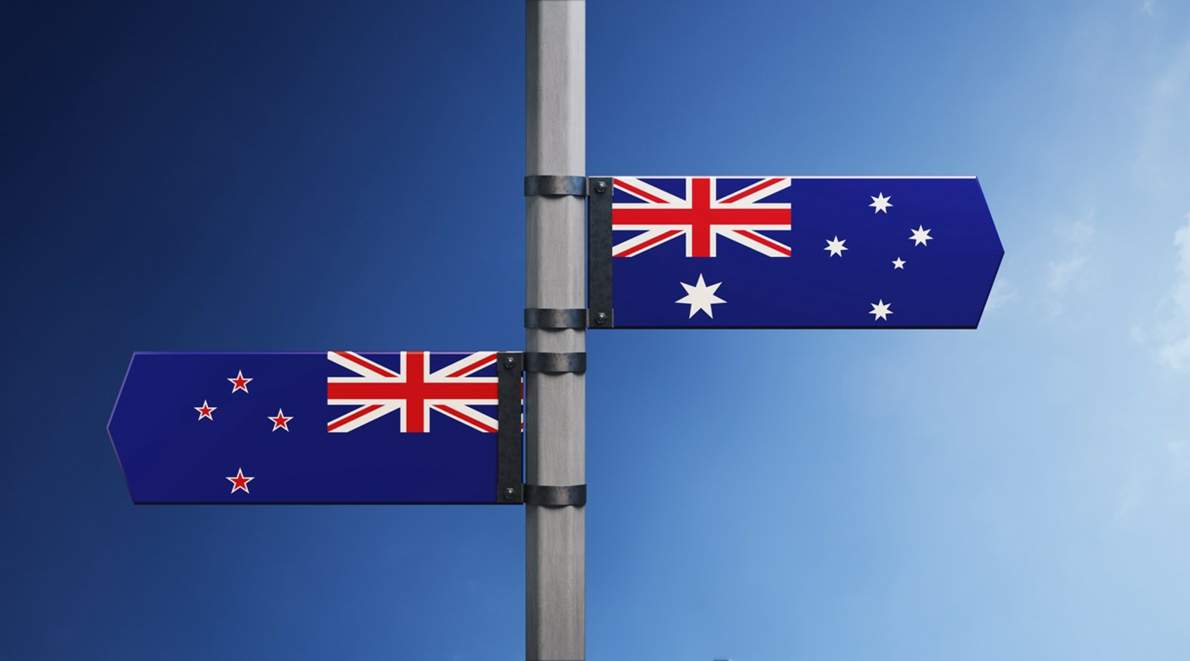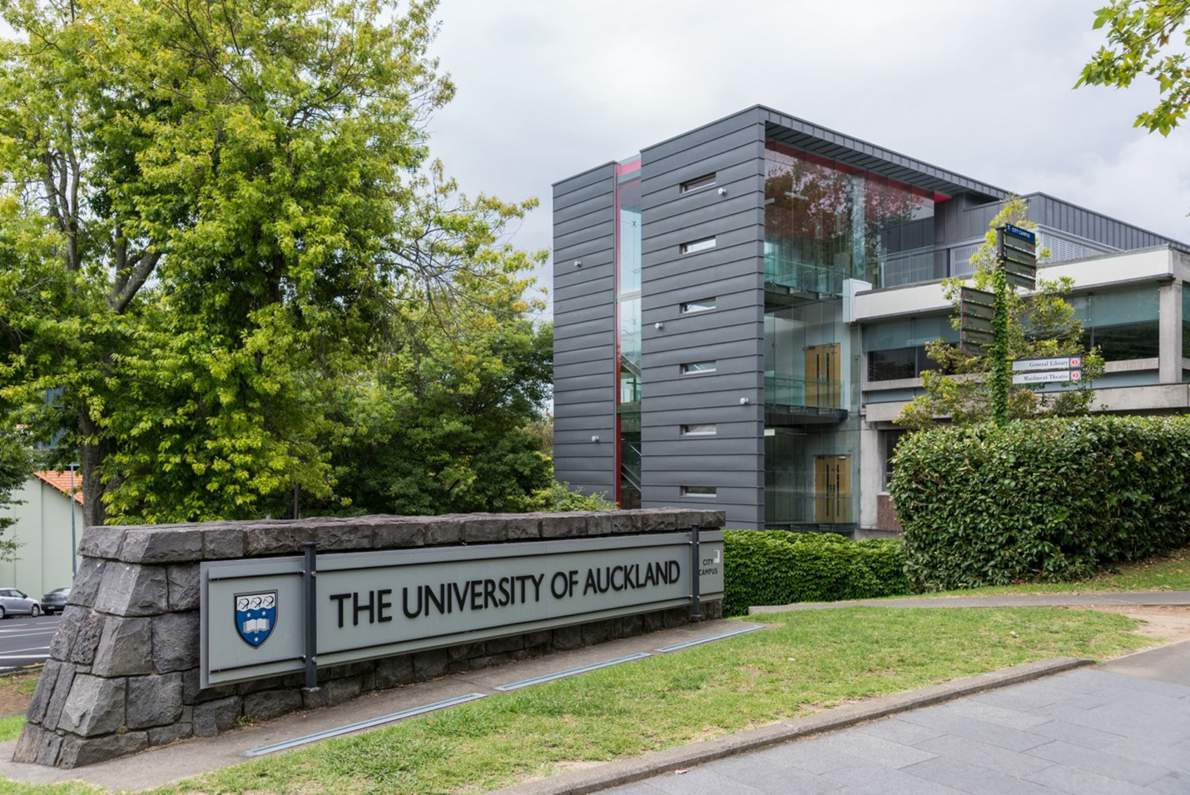Moving to New Zealand from Australia (Everything you need to know)
 Relocate to New Zealand From Australia
Relocate to New Zealand From Australia
Moving to New Zealand from Australia can be an exciting and life-changing experience. New Zealand is known for its rich history, diverse culture, and bustling cities, making it a popular destination for expatriates. However, relocating to a new country also comes with its own set of challenges and considerations. From obtaining the necessary visas and work permits to finding suitable housing and adjusting to a new way of life, there are numerous factors to take into account when planning such a move.
In this guide, we will explore the various aspects of moving to New Zealand from Australia, providing valuable insights and practical tips to help make the transition as smooth as possible. Whether you are relocating for work, study, or simply seeking new opportunities, this guide aims to be a comprehensive resource to assist you in navigating the complexities of international relocation.
Navigating Customs and Immigration: Essential Information
When it comes to immigrating to New Zealand from Australia, understanding the customs and immigration procedures is crucial. New Zealand has specific visa and work permit requirements for different types of expatriates, such as skilled workers, students, entrepreneurs, and family members of NZ residents. It's important to familiarise yourself with the appropriate visa category based on your purpose of relocation and to ensure that you meet all the eligibility criteria.
Australian citizens and permanent residents are granted certain privileges when it comes to migrating to New Zealand, thanks to the Trans-Tasman Travel Arrangement. This arrangement allows Australian citizens and permanent residents to live, work, and study in New Zealand indefinitely. For Australian citizens, this means that you can enter New Zealand as a visitor without needing a visa, and can then apply for residency once you arrive. For Australian permanent residents, you will need to apply for a New Zealand Electronic Travel Authority (NZeTA) before traveling to New Zealand.
Australian temporary residents such as those on work or student visas, will need to apply for the appropriate visa and work permit to live and work in New Zealand. For those seeking employment in New Zealand, the process of obtaining a work visa can vary depending on factors such as the job type, sponsorship by a NZ-based employer, and the duration of the intended stay.
For international students, it is important to research and understand the visa options available for studying in New Zealand. The country offers various student visas, each with its requirements and restrictions. Students may need to provide evidence of acceptance into a recognized educational institution, sufficient funds to support themselves, and a clear plan for their studies in order to obtain the necessary visa.
For entrepreneurs and those planning to start a business in New Zealand, familiarising yourself with the visa options tailored for individuals looking to invest or establish a company is crucial. When it comes to family members of New Zealand residents, it is essential to comprehend the requirements and procedures for family reunification visas, including the eligibility criteria and supporting documentation needed to accompany the application. For more information on different types of visas issued in New Zealand, visit the New Zealand Immigration website.
Additionally, understanding the customs regulations and import restrictions when bringing personal belongings to New Zealand from Australia is essential. There are specific rules regarding the import of certain items, including pets, vehicles, and restricted goods. Being well-informed about these regulations can help avoid any unexpected issues and give you a stress-free relocation experience.
Healthcare in New Zealand: What Australians Need to Know
Understanding the healthcare system in New Zealand is essential for Australians planning to move there. New Zealand has a public healthcare system that provides basic medical services to residents and certain visa holders. As an Australian citizen or permanent resident, you may be eligible for some healthcare services under the Reciprocal Health Care Agreement between Australia and New Zealand. This agreement entitles you to limited healthcare coverage for immediately necessary medical treatment while in New Zealand.
However, it's important to note that the RHCA is not a substitute for travel insurance, and it may not cover all medical expenses or emergency repatriation to Australia. Therefore, it is advisable to obtain comprehensive travel insurance to cover any unforeseen illnesses, accidents, or medical emergencies while in New Zealand.
As a new resident in New Zealand, you can also consider enrolling in the public health system, which provides subsidized healthcare services to eligible residents. Enrolling in the public health system will give you access to a range of medical services, including doctor's visits, hospital care, and prescription medications at a reduced cost.
It's recommended to research and understand the healthcare options available in New Zealand to ensure that you have appropriate coverage for your medical needs and peace of mind during your relocation. By delving into these healthcare considerations and seeking comprehensive information, you can effectively prepare for your healthcare needs and ensure a smooth transition to New Zealand.
Educational Systems: Schools and Universities in New Zealand
 School and University Options in New Zealand
School and University Options in New Zealand
When considering a move to New Zealand from Australia with children, understanding the educational system is crucial. New Zealand offers a diverse range of educational opportunities, from early childhood education to higher education.
New Zealand's school system is divided into three levels: primary, secondary, and tertiary. Primary education typically begins at age 5 and runs through to age 11, after which students move on to secondary education. Secondary education in New Zealand generally covers ages 12 to 18 and culminates in the National Certificate of Educational Achievement examinations. For expatriate families, researching and selecting the right school for your children is an important step. New Zealand boasts a mix of public, private, and international schools, each offering different curriculums and educational approaches. It's essential to consider factors such as location, facilities, extracurricular activities, and academic reputation when choosing a school for your children.
Additionally, New Zealand is home to several reputable universities and tertiary institutions, making it an attractive destination for individuals pursuing higher education. As an Australian citizen or permanent resident, you may be eligible for domestic fees at New Zealand universities, under the "domestic student" status. This presents an opportunity for Australian students to pursue their academic goals in New Zealand with favourable fee structures.
Whether you are exploring educational options for your children or considering further studies for yourself, delving into the educational landscape of New Zealand will provide valuable insights.
Employment Opportunities: Working in New Zealand as an Australian
When it comes to seeking employment in New Zealand as an Australian expatriate, it's essential to have a thorough understanding of the diverse employment landscape and career opportunities available in your field of expertise. Whether you are a skilled professional, a recent graduate, or an entrepreneur, navigating the job market in New Zealand requires careful research and strategic planning.
New Zealand offers a broad range of job opportunities across various industries, including finance, technology, healthcare, engineering, and the creative arts. Understanding the demand for specific skill sets, industry standards, and professional networks can significantly enhance your prospects of securing suitable employment.
For skilled workers, it’s a good idea to research the job market and identifying potential employers who sponsor work visas. Additionally, staying updated on the latest immigration policies and visa regulations can help streamline the application process and ensure compliance with New Zealand immigration laws.
As a recent graduate or a student transitioning into the workforce, exploring internships, graduate programs, and entry-level positions can provide valuable insights into New Zealand’s job market and industry dynamics. Leveraging career advisory services offered by universities and professional organisations can also assist in career planning and job search strategies.
Entrepreneurs and aspiring business owners relocating to New Zealand should conduct comprehensive market research and assess the feasibility of their business ventures. Familiarising yourself with the visa options tailored for individuals looking to invest or establish a company is essential for navigating the regulatory requirements and launching a successful business in the country.
To gain a deeper understanding of the job market, employment trends, and professional development opportunities in New Zealand, consider networking with expatriate communities, industry associations, and local career forums. Engaging with career counsellors, attending job fairs, and utilising online resources specific to your field can also provide valuable insights and connections in your job search efforts. Most importantly, visiting this website about New Zealand employment will provide you with everything you need to know about working in NZ.
Settling in New Zealand: Finding Your New Home
 Settling in New Zealand
Settling in New Zealand
Finding the right place to call home is important when moving to New Zealand. Whether you prefer the vibrant atmosphere of city living or the tranquillity of the countryside, familiarising yourself with the housing market and the various options available can help you make an informed decision.
In New Zealand, the housing market offers diverse choices, including apartments, townhouses, detached houses, and more. Understanding the rental and purchasing processes, along with associated costs and legal formalities, is essential for finding a suitable residence. Additionally, considering factors such as proximity to work, access to amenities, and the quality of local schools can guide your search for the perfect home.
Exploring property listings on reputable websites, working with local real estate agents, and attending open house viewings can provide valuable insights into the available housing options. It's important to take the time to visit different neighbourhoods and communities to get a feel for the area and assess whether it aligns with your lifestyle preferences and practical needs.
If you are considering purchasing a property, researching mortgage options, understanding property taxes, and seeking legal advice can streamline the home-buying process and ensure a sound investment. For those leaning towards renting, familiarising yourself with tenancy agreements, landlord responsibilities, and renter's rights can help guide you into your new rental home.
Furthermore, tapping into expatriate communities, local social groups, and online forums can offer firsthand experiences and recommendations for navigating the housing market and settling into a new home in New Zealand. By immersing yourself in the local culture and community, you can establish a sense of belonging and create a welcoming environment for you and your family in your new country of residence.
Remember, taking the time to thoroughly research and explore your housing options will empower you to find a place that suits your preferences and supports your newfound lifestyle in New Zealand.
Transport and Logistics: Moving Your Belongings Safely
 We'll Move Your Belongings Safely
We'll Move Your Belongings Safely
Moving to a new country involves careful planning, especially when it comes to transporting your belongings. Ensuring the safe and efficient relocation of your possessions to New Zealand requires attention to various logistics and considerations.
Familiarising yourself with the customs regulations and import duties applicable to bringing personal items into New Zealand is crucial for a smooth clearance process. Certain items may be subject to restrictions or require special permits, so staying informed about the import requirements can prevent potential delays or issues upon arrival.
Packing your belongings securely and strategically is essential for safeguarding them during transit. Utilising quality packing materials, labelling boxes clearly, and documenting the contents can streamline the unpacking process and help maintain the condition of your possessions. If you have valuable or fragile items, considering additional insurance coverage for your shipment can provide peace of mind and financial protection in case of unforeseen events during transit.
When coordinating the shipping of your belongings, it's essential to research reputable international full-service moving companies with experience in handling overseas relocations. Obtaining multiple quotes, verifying credentials, and reviewing customer feedback about expert moving advice can aid in selecting a reliable and trustworthy moving service.
Once your belongings arrive in New Zealand, efficient coordination of the delivery and unpacking process is essential for a smooth transition into your new home. Communicating with the moving company, arranging for proper storage if needed, and overseeing the unpacking and placement of items can help with the settling-in process.
Choosing the Right Moving Company: What to Look For
Once you've decided to utilise the services of a full-service moving company for your international relocation to New Zealand, there are several key factors to consider when choosing the right one. Considerations for choosing the right moving company for your international relocation to New Zealand include:
- Experience and Expertise: It's important to choose a full-service moving company that has extensive experience and expertise in handling international moves, specifically to New Zealand. This ensures that they are familiar with the necessary logistics, regulations, and potential challenges involved in transporting belongings across borders.
- Certifications and Licences: Verify that the moving company holds the appropriate certifications and licences required for international relocations. These may include certifications such as FIDI-FAIM, which demonstrate compliance with industry standards and best practices when it comes to logistical support for moving.
- Insurance Coverage: Confirm that the moving company offers comprehensive insurance coverage to protect your belongings during transit. This includes coverage for any potential damages, loss, or theft that may occur during the relocation process.
- Transparent Pricing: Look for a moving company that provides transparent pricing, with no hidden fees or surprises. Ensure that they provide a detailed and itemised quote, clearly outlining the costs involved in your international relocation to New Zealand.
- Different Services and Customisation: Consider whether the moving company offers a range of services to meet your specific needs. This could include options for packing and unpacking, furniture disassembly and reassembly, storage solutions, and any other additional services you may require.
- Moving Timeline and Logistics: Discuss the estimated timeline for your move and ensure that the moving company can accommodate your desired schedule. They should have a well-organised logistics plan in place to handle the transportation and delivery of your belongings in a timely manner.
Final Checklist: Before You Leave Australia
If all the necessary preparations for your international relocation to New Zealand have been made, there are a few final things to check off your list before leaving Australia:
- Notify relevant parties of your move, such as utility providers, banks, and government agencies. Arrange for mail forwarding or provide a forwarding address to ensure you receive any important correspondence.
- Ensure that all necessary documentation and paperwork are in order, including passports, visas, and any permits required for your stay in New Zealand. Put them in a secure and easily accessible place, such as a file case or document organiser, for easy retrieval upon arrival.
- Make copies of important documents such as identification cards, insurance policies, and medical records, and keep them in a separate location from the originals. This will serve as a backup in case any originals get lost or damaged during the move.
- Organise your finances and ensure that any outstanding bills or subscriptions are settled before leaving. This will help you start your new life in New Zealand with a clean slate and avoid any potential financial complications.
- Pack your essentials in a carry-on bag or suitcase, including important documents, medication, toiletries, and a change of clothes. This will ensure that you have immediate access to essential items upon arrival in New Zealand and minimise any inconvenience in case of delayed or misplaced luggage.
First Steps Upon Arrival: Settling into New Zealand
When you first arrive in New Zealand, there are several key things to do to help you settle into your new country: -
● Apply for an IRD number: This is essential for working in New Zealand, accessing loans, and opening bank accounts. You can apply through the New Zealand government's online portal and make sure you have the necessary documents such as your passport and Immigration New Zealand application number.
● Open a bank account: Having a local bank account will make it easier for you to manage your finances and carry out day-to-day transactions. You can research different banks in New Zealand and choose one that suits your needs.
● Register with a General Practitioner: It is important to find a local GP and register with them to ensure access to healthcare services. This will be essential for ongoing medical care and assistance during your time in New Zealand.
● Familiarise yourself with the local transportation system: Obtain an AT HOP card in Auckland or a similar travel pass in other cities for ease of commuting. These steps will make navigating the city and getting around much simpler.
● Research and understand the local culture, customs, and laws of New Zealand: This will help you integrate into the community, avoid any cultural misunderstandings, and ensure that you abide by local laws and regulations.
Adjusting to Life in New Zealand: Culture, Climate, and Community
 Enjoy the Culture, Climate, and Community in New Zealand
Enjoy the Culture, Climate, and Community in New Zealand
Upon arriving in New Zealand, you will find yourself immersed in a unique and enriching cultural tapestry. The indigenous Māori culture plays a significant role in shaping the country's identity, and you may have the opportunity to engage with traditional Māori customs, language, and arts. Understanding and respecting the Māori culture can greatly enrich your experience and help you connect with the local community.
In addition to the rich cultural diversity, New Zealand's climate offers a wide range of experiences, from the subtropical North Island to the alpine environments of the South Island. Familiarising yourself with the climate variations can help you prepare for the different seasons and outdoor activities that New Zealand has to offer.
Furthermore, integrating into the local community can be facilitated by participating in social or recreational activities, volunteering opportunities, and local events. Building connections with fellow expatriates, as well as Kiwis, can provide a strong support network and enrich your overall experience in New Zealand.
Being mindful of these cultural, climatic, and community aspects will contribute to a smoother and more fulfilling transition to life in New Zealand. Embracing diversity, adapting to the climate, and engaging with the local community will undoubtedly enhance your journey as an Australian citizen or permanent resident settling in New Zealand.
Ready to Move to New Zealand from Australia?
The process of moving from Australia to New Zealand involves navigating complex immigration and customs procedures, adapting to a new culture and climate, and establishing a supportive social network. With the assistance of Chess Moving, the relocation process can be made significantly smoother and more manageable.
Chess Moving is an Australian-owned and operated company that provides expertise in international relocations, offering comprehensive services that cover everything from packing and shipping belongings to handling customs clearance and delivery. By enlisting the help of professionals, individuals moving to New Zealand can alleviate much of the stress and logistical challenges associated with the relocation process.
Our team’s knowledge of the customs regulations and import restrictions between Australia and New Zealand can ensure a seamless transition for personal belongings, including pets and vehicles. Additionally, our logistical support for moving, especially navigating the necessary paperwork and procedures for importing household goods, can help prevent delays and complications during customs clearance.
Through the collaboration with Chess Moving Company, your move from Australia to New Zealand can benefit from a well-organised and supported relocation, enabling you to focus on embracing the opportunities and experiences that await you and your family in your new home.
Visit Chess Moving today or call us on 13 14 69.